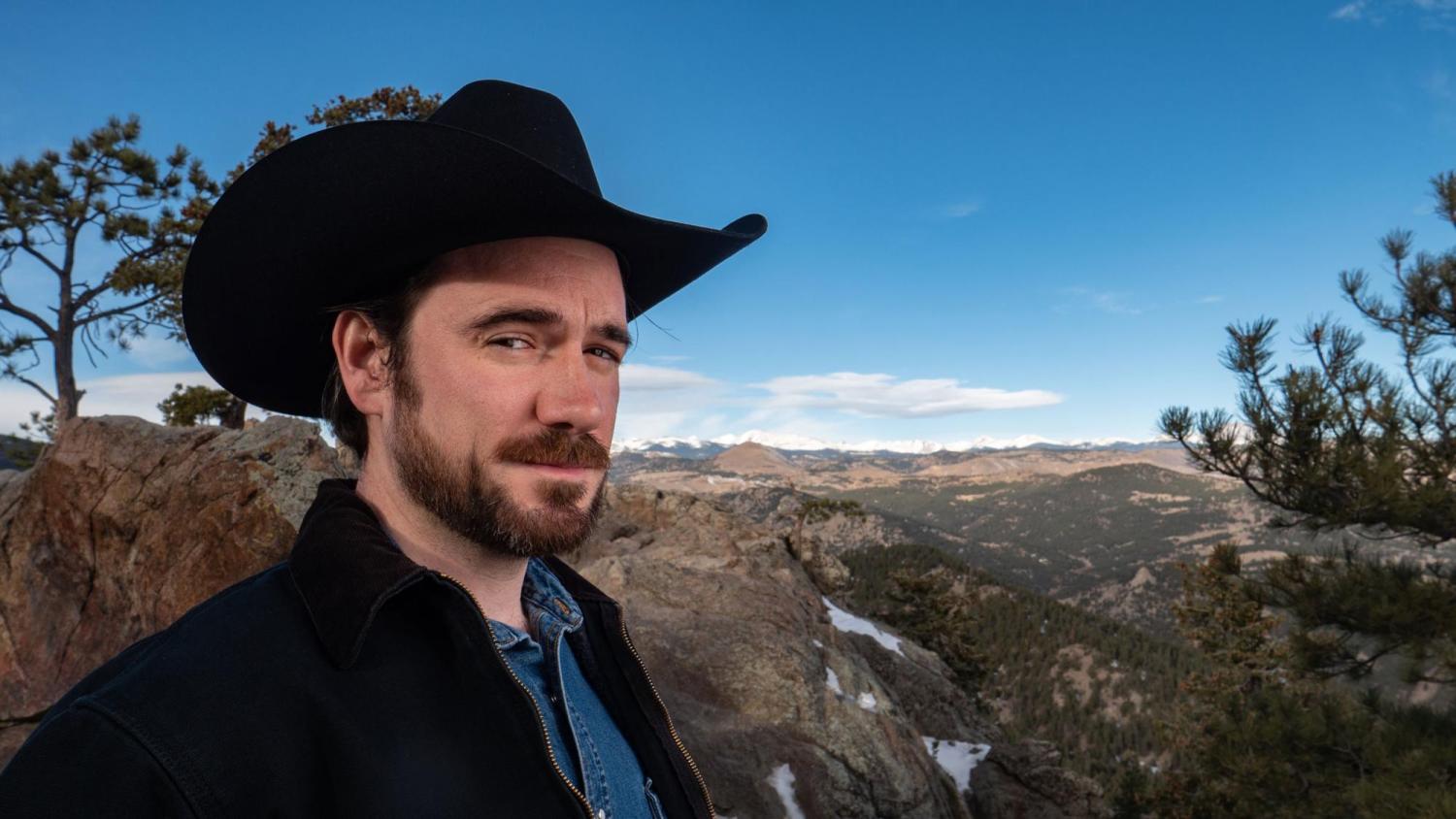
Our Viking-Cowboy YouTube Star

Jackson Crawford, director of CU’s Nordic Studies program, studies and translates Old Norse, a language spoken by medieval Scandinavians. Here the native Coloradan talks Vikings, videos and his contribution to the Disney animated film Frozen.
What is the context of the literature you study?
The stuff that I'm looking at is roughly 1,000 years old. The poems of The Poetic Edda, about the Norse gods and heroes, were probably composed around the 900s and passed down orally. Then in Iceland in the 1200s, there was a big antiquarian interest and a lot of their oral poetry and sagas were written down.
Tell me about Vikings.
During the Viking age, about AD 800 to 1100, Scandinavians were making a killing off of raiding and pillaging the richer lands south of them. It’s a hyper martial society with a family-based morality, so you can rob and kill people you’re not related to. As far as physical image goes, Vikings didn’t really wear horned helmets. But they did fight with axes. Also, they were actually quite clean. In the Scandinavian days of the week, Saturday is called bath day. A bath a week doesn't sound fantastic to us, but by medieval standards they were very clean.
Why did you translate The Poetic Edda and The Saga of the Volsungs?
The other translations were so hard to read. Previous translators were too fixed on the word order in Old Norse, which makes really awkward sentences in English. They also wanted it to sound old — it’s like “thou art.” Very Shakespearean. In my translations, I’m willing to mix around the word order and put it in normal English. Apparently it struck a chord. For two years in a row, my translation of The Poetic Edda is pretty often the number-one best seller in European literature on Amazon. It sold 10,000 copies in 2017.
What led you to launch your YouTube channel?
In 2016, I was an adjunct professor in California making $1,600 a month while paying $1,200 a month in rent. I had to do something else to make ends meet. When I started the videos, I was just sitting in my office, but I noticed that when I went back home to Wyoming and Colorado and made videos outdoors those were a lot more popular. So I decided to make all of them outdoors. It’s become my brand. I’m the guy who talks about Norse mythology in the mountains with a cowboy hat on.
How much time goes into your videos?
About six hours per video, and I try to put out two videos a week.
Have you always dressed in cowboy/Western style?
Yes. I grew up in Clear Creek Canyon. My grandfather was old-school Western, and I just picked up his style.
What do you hope your impact will be with the YouTube videos?
There’s a lot of information about Norse mythology and Norse language on the web, but most of it is terrible. There are people with three or four times more followers than me who are basically making stuff up. What I’m trying to do is say ‘This is what we actually see in ink and calfskin.’ The community around my videos has been overwhelmingly positive and appreciative of the fact that I tell them what we know and I don’t start making up things to fill in the holes.
Do you see parallels in American Western and medieval Scandinavian cultures?
Old Norse sagas always have a frontier edge to them. They’re so much like Westerns. People were living far apart, relying on themselves and their small family. It’s the same attitude, like ‘Back when men were men and the wilderness was still untamed.’ If someone challenges your honor, you fight them with an axe in the sagas, with a gun in the Westerns.
I heard you were a consultant for the Disney movie Frozen.
The creative team wanted to give Frozen that old Scandinavian feel. I wrote the runes [ancient alphabet letters] in a book you see at the beginning. There’s also a scene with spoken Old Norse — that voice is the actor imitating me.
In our print edition, this story appears under the title "Our Viking Cowboy." Condensed and edited.
Photo by Glenn Asakawa

